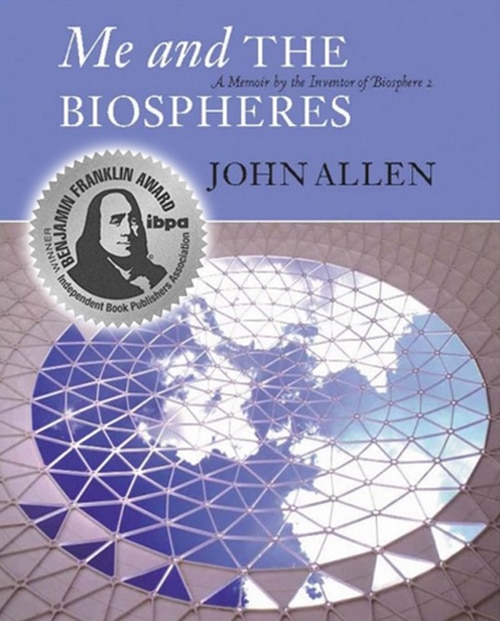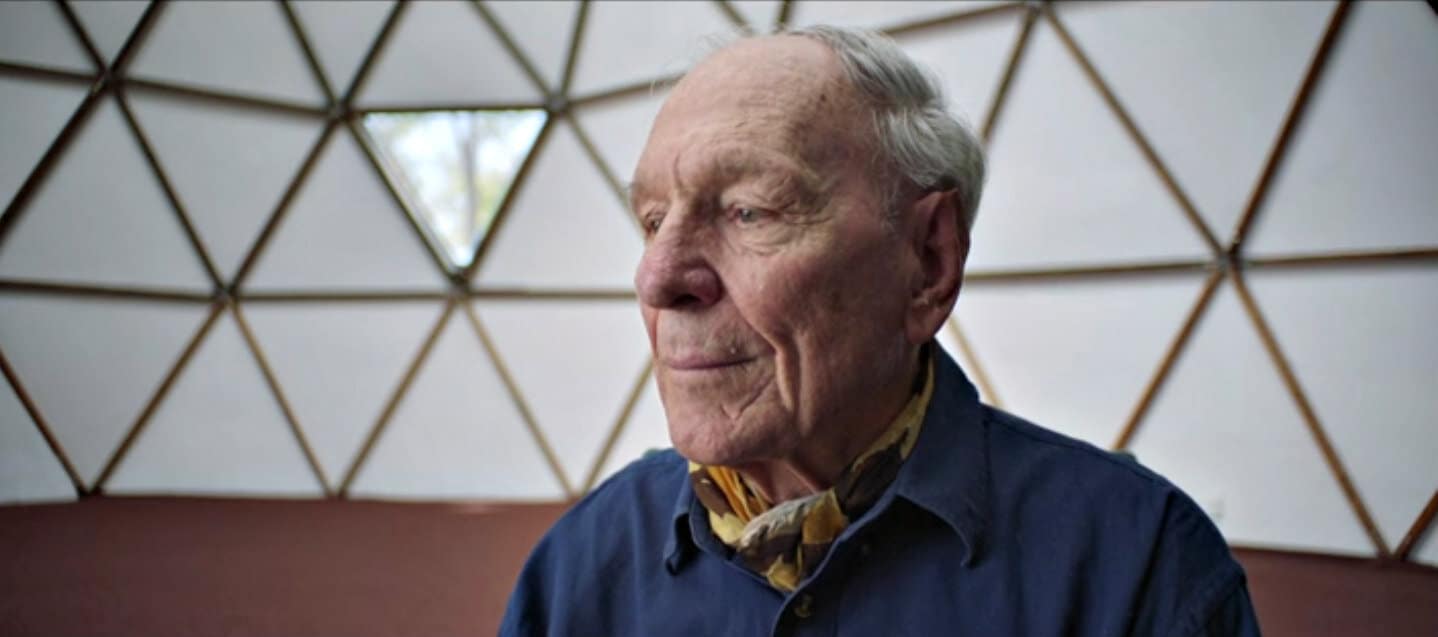May 6th, 2024, marks writer, ecologist and engineer, John Allen’s 95th birthday! Among his friends and peers, John is often referred to as Johnny Dolphin. On his birthday, we celebrate the accomplishments and inspiration he has seeded throughout his lifetime and continues to perpetuate.
Johnny is a thought leader, innovator, poet, and, most notably, a planetary steward. As an explorer of the mind and planet, Johnny and his cohorts birthed many inspirational endeavors including Biosphere II in Oracle, AZ (containing every biome in the world within a glass-enclosed dome of 3.14 acres), Synergia Ranch (organic farm, orchard, adobe construction company and more) in Santa Fe, NM, the Research Vessel Heraclitus (a ferro-cement ship, based on the design of a Chinese Junk, that has traveled 270,000 miles in every sea in the world, except the Arctic), the October Gallery in London, UK (home of the ‘transvangarde’ art movement), Las Casas de la Selva (sustainable forestry project in Puerto Rico), and the Institute of Ecotechnics (which has held annual conferences on pressing ecological concerns at the highest level since the early 1970s), and more.
If you would like to learn more about his work, he has written a memoir published by Synergetic Press, Me and the Biospheres: A Memoir by the Inventor of Biosphere 2.
We hope you enjoy your birthday, Johnny!

The 2009 Winner of the Benjamin Franklin Award for Best Biography/Memoir, Me and the Biospheres is the definitive autobiography of John P. Allen, inventor of the largest laboratory for global ecology ever built and one of the most luminous minds of our time.
Contained within a magnificently designed air-tight glass and steel frame structure, Biosphere 2 covered three acres of Arizona desert and included models of seven biomes: an ocean with coral reef, a marsh, a rainforest, a savannah, a desert, farming areas and a micro-city. Eight people lived inside this structure for two years (1991-1993) and set world records in human life support, monitoring their impact on the environment, while providing crucial data for future manned missions into outer space. Anyone concerned with the current world trajectory will identify with Allen’s uplifting account of the most ambitious environmental experiment ever undertaken.
Humorous and Whitmanesque, Me and the Biospheres is a tribute to the ingenuity and dauntlessness of the human mind and a passionate call to reawaken to the beauty of our peerless home, Biosphere 1, the Earth.
